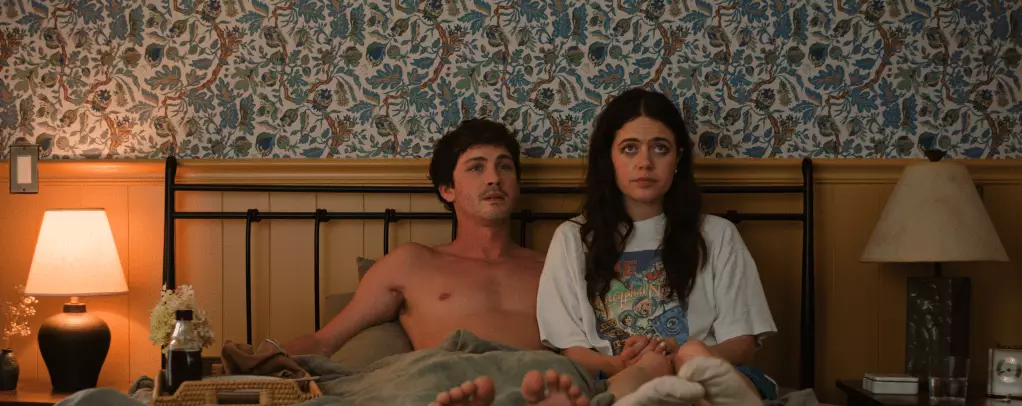Sophie Brooks, with her latest offering “Oh, Hi!”, is poised to challenge the conventional norms of romantic comedy. The film premiered at Sundance before its theatrical release on July 25. In a landscape that often favors big-budget productions, Brooks’ command of storytelling injects authenticity and vulnerability into her narratives. It’s gratifying to see a director blossom from her debut film, “The Boy Downstairs,” into a more seasoned storyteller. The storyline, focusing on a tumultuous romantic getaway gone awry, speaks volumes about modern relationships in an era rife with uncertainty.
The Allure of Independent Voices
With “Oh, Hi!,” Brooks immerses the audience in the complexities of love, particularly through the lens of its leads, Iris and Isaac, played by Molly Gordon and Logan Lerman, respectively. Their chemistry sets the stage for an exploration of how far one might go to forge a meaningful connection. The film’s premise resonates on a personal level, illustrating a fleeting yet poignant moment that will leave viewers reflecting on their relationships.
One must appreciate the richness brought by independent films like Brooks’ in an industry often dominated by formulaic narratives. Independent cinema presents a stark contrast to mainstream productions by foregrounding intricate character development and genuine dialogue. It’s refreshing to see an emphasis on storytelling rather than spectacle, allowing nuanced spaces for reflection.
Character Depth in Romantic Settings
Throughout “Oh, Hi!”, the emotional stakes run high as Iris endeavors to prove her connection with Isaac. This mirrors the common fears faced in real-world relationships—fear of rejection, vulnerability, and commitment. Such depth imbues the characters with relatability, making their journey all the more engaging. It’s a thoughtful reminder that love is rarely a smooth ride, especially in a world with overwhelming options and distractions.
However, the film also illustrates the dangers of pursuing a relationship that may not be reciprocated. Iris’s desperate attempts to reinforce their bond tread a tricky line between passion and obsession, prompting the viewer to question the true nature of love. Is it romantic to fight for someone, or does it veer into an unhealthy fixation? It’s a thought-provoking perspective, nudging us to critically analyze our own romantic pursuits.
The Power of Female Storytelling
Another remarkable aspect of “Oh, Hi!” is its representation of female experiences within the romantic genre. Brooks, a woman directing a story about women’s desires and fears in love, brings a fresh voice that is increasingly vital in an industry still recovering from outdated stereotypes. The film emerges as an antidote to a boy-centric narrative that has, for decades, shaped public perception of romantic relationships.
Through nuanced storytelling led by a talented female cast and crew, Brooks paints a realistic picture that ventures beyond surface-level attractions. This is where the film shines—delving into the messy, unpredictable feelings of modern romance. In a time when the feminist discourse is critical, “Oh, Hi!” flaunts a narrative that is far from mere fluff; it is a heartfelt exploration resonating with anyone who has ever been in love.
“Oh, Hi!” encapsulates a sense of what romantic comedies should strive to be—refreshing, thought-provoking, and beautifully layered. It serves as not just an individual story, but a broader commentary on a generation striving for real connections in an increasingly disconnected world.

